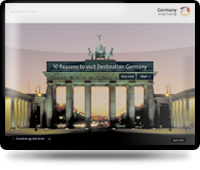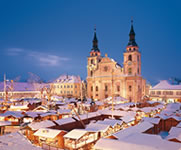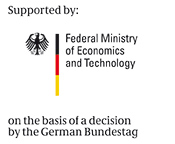A tour along the Minden-Lübbecke Westphalian Mills Route is also a way of winding the clock back to the turn of the 20th century when windmills, watermills and treadmills were still used to grind the grain for people's daily bread. Nowhere in Germany is the art of milling – and the story of inventive technical genius – portrayed as instructively and in such diversity as in this area of fields, meadows and parks between the Wiehengebirge hills and the River Weser and Lake Dümmer. 42 mills that have been lovingly restored and are under preservation orders line the course of the Westphalian Mills Route, a well signposted circuit of approx. 320 km divided into three different touring options. These decorative mills are presented with a touch of nostalgia and integrated aesthetically into a unique landscape. It was not only flour for bread that was milled here, but also barley malt for Minden beer, highly prized even back in Hanseatic times.
During the mills' restoration, many bakehouses were also renovated, so that on certain days modern city dwellers can see how grain is milled to make flour and then baked into nourishing bread in stone ovens. At weekends between April and October, skilled amateur millers and countryfolk who are proud of their heritage demonstrate all the romance and nostalgia of the mills tradition along the Westphalian Mills Route. Whenever people hear the flapping of the mill's sails - a very familiar sound in days gone by - they know it is milling and baking day along the Mills Route, a universally popular festival for visitors and local people alike and an opportunity to get to know the hospitality and local specialities of Westphalia.
 Skip to content
Skip to navigation
Skip to subnavigation
Skip to search
Skip to content
Skip to navigation
Skip to subnavigation
Skip to search






